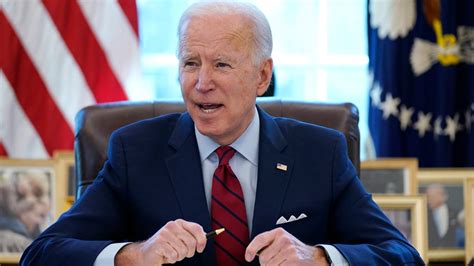The Senate Parliamentarian has ruled that Democrats can go around the GOP filibuster on two more bills, meaning Joe Biden is inching closer to passing his massive $2.25 trillion dollar infrastructure bill without any support from Republicans.
The decision paves the way for Biden’s infrastructure bill to pass in two separate packages with simple-majority votes, meaning 51 votes.
The Democrats are trying to use reconciliation to ram through Biden’s $2.25 trillion infrastructure package that has almost nothing to do with infrastructure.
CNN reported:
The Senate parliamentarian has ruled that Democrats may amend the budget resolution they used for their Covid-19 relief bill and attach another set of reconciliation instructions to it, according to two sources familiar with the matter.
The ruling is a key step for Democrats as they weigh their options for moving infrastructure legislation, potentially giving them a route to pass new legislation without Republican votes.
It’s important to note, however, that some details are still going to have to be worked out with the parliamentarian, and it was not immediately clear whether it could be used to pass President Joe Biden’s infrastructure plan.
“The Parliamentarian has advised that a revised budget resolution may contain budget reconciliation instructions. This confirms the Leader’s interpretation of the Budget Act and allows Democrats additional tools to improve the lives of Americans if Republican obstruction continues,” a spokesperson for Schumer said in a statement Monday.
“While no decisions have been made on a legislative path forward using Section 304 and some parameters still need to be worked out, the Parliamentarian’s opinion is an important step forward that this key pathway is available to Democrats if needed,” the aide added.
So how is Biden paying for this trillion-dollar infrastructure bill? Raising taxes.
As noted by the Daily Mail:
Biden has proposed hiking the corporate tax rate in the US to 28 percent from 21 percent, which would partially undo the Trump administration’s cut from 35 percent in its 2017 tax bill.
The administration also wants to increase the international minimum tax rate that American companies pay on their foreign profits to 21 percent.
And some Democrats are also questioning Biden’s method of paying for his plan.
Democratic Rep. Peter DeFazio of Oregon, the chairman of the House Transportation and Infrastructure Committee, told the Wall Street Journal he didn’t think paying for the full cost of the plan through tax increases was necessary.
“When you’re borrowing money for current consumption versus borrowing money for investment it’s a different thing,” he said.
Democrat West Virginia Sen. Joe Manchin also came out against Biden’s plan of raising the corporate tax rate to 28 percent.
Manchin said he is against raising the current 21% corporate tax rate — which was put in place by the 2017 tax overhaul under the Trump administration — to 28% as called for in the bill and instead supports a middle ground 25% rate, which he called “fair.”
Manchin flexed his muscle in the interview saying that if he does not vote for the bill it is not getting done.
“If I don’t vote to get on it, it’s not going anywhere. So we’re going to have some leverage here. And it’s more than just me, Hoppy. There are six or seven other Democrats who feel very strongly about this. We have to be competitive and we’re not going to throw caution to the wind,” the senator said, but he did not say who the other Democrats are,” he said.
Given the tight Democratic majorities in Congress, Biden can’t afford to lose any members of his party when it comes time to vote on the massive infrastructure package.
If he loses one Senate Democrat, it’s highly likely the bill fails.

